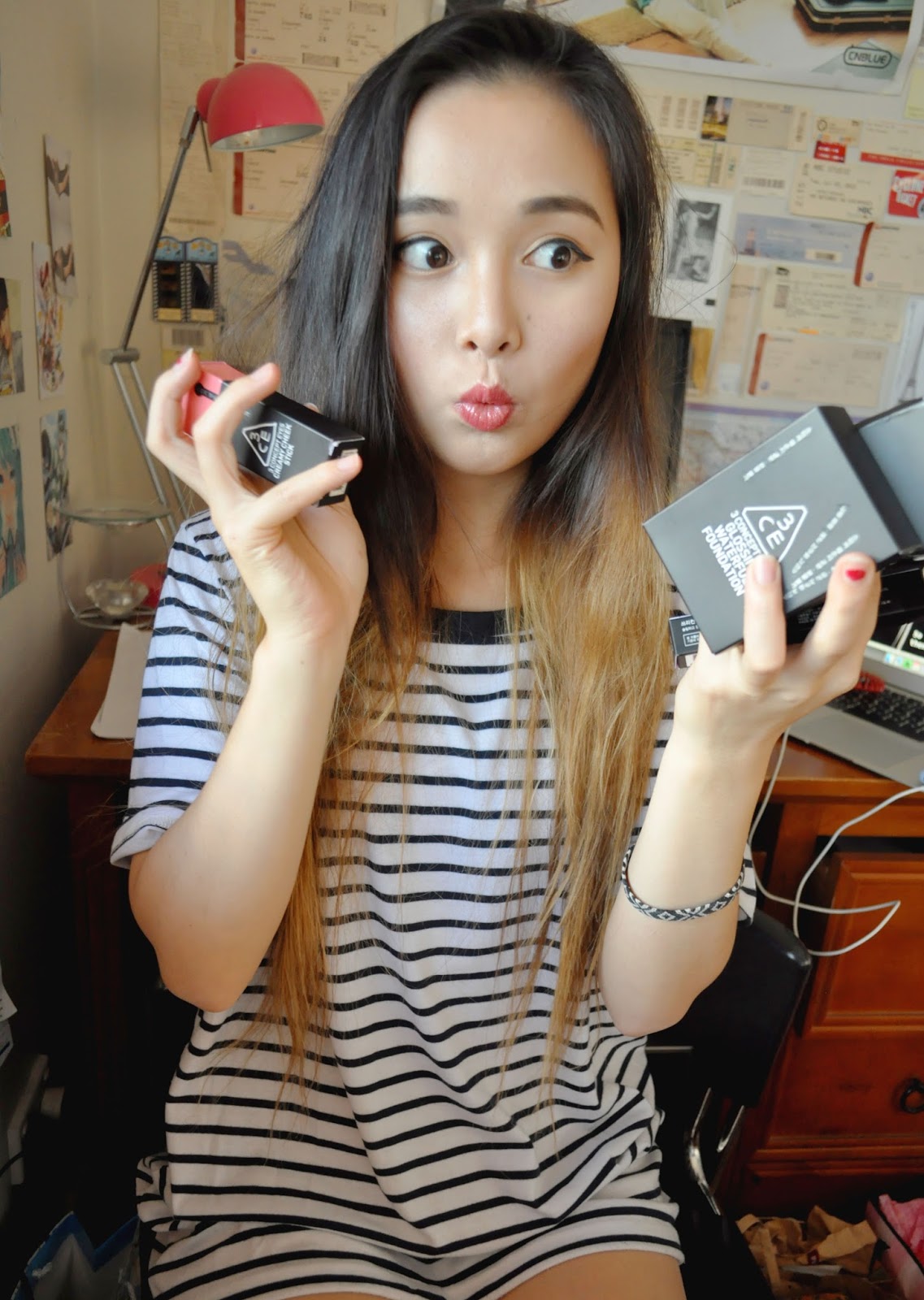
When I was in high school, I had a dream to open up my own fashion business and run it successfully. I don't know what it was, but something about the aspect of selling a product to prospective customers and seeing it grow really appealed to me. I've always loved that transactional nature of businesses, marketing your product, seeing customer interest, facilitating the sale and that feeling of thrill and accomplishment as a result of it all.
When I was in Year 11, I started A Lemon's Life, which I shared on this blog (you can see that post here). It was just a basic online fashion store, with clothes I had sourced from AliExpress, sharing styles I really loved. Needless to say, that didn't work out too well in the end, because of lack of knowledge and experience but from it, I learnt so much about the fundamentals of setting up an ecommerce store.

So, when I was in my second year of university, I decided I really wanted to give it another go. My passion for beauty and fashion guided me to the idea of an Beauty and Fashion subscription box called Kiyo Box. I started by myself, curating 4-5 korean beauty products and 3-4 fashion pieces per month at $50. A couple of months later, I had a team of 4 working on our second iteration. This time, 3-4 korean beauty products and 2-3 fashion pieces for $40. We identified our first product issue as being too expensive for a subscription box of our type. Then again, a few months later, Kiyo Box become a solely beauty box, after we discovered that fashion sizing and logistics was too complex and unappealing for potential customers. Every time we iterated, I felt more confident and excited about the business, to see where it would go. Eventually, my amazing team had other commitments consume their time and since they weren't being paid, it felt natural for them to follow better opportunities elsewhere.

The final pivot was narrowing all the way down to just SHEET MASKS, at $20 on a bi-monthly basis. This worked really well for the first release, selling out and then second release was alright too. But gradually, I saw interest in my immediate circle tapering off and it became super difficult to constantly be a walking advertisement rather than a real human on my personal social media networks. For this reason (you may have guessed already), the main point of this blog post is to announce that after a two-year journey, I've decided to close up this chapter of my life and shut down Kiyo Box.
But this isn't a post to just say, 'hey, I failed, I wasn't successful, I'm so sad'. Instead, I saw this whole experience as a positive thing because I achieved exactly what I had hoped in the beginning. Whilst obviously there was the dream of running a successful business, I also wanted to learn as much as I could from this experience and see how it could support me in the future for further endeavours.
So, with that being said, let's take a look at what are 5 key lessons I learnt.

The final pivot was narrowing all the way down to just SHEET MASKS, at $20 on a bi-monthly basis. This worked really well for the first release, selling out and then second release was alright too. But gradually, I saw interest in my immediate circle tapering off and it became super difficult to constantly be a walking advertisement rather than a real human on my personal social media networks. For this reason (you may have guessed already), the main point of this blog post is to announce that after a two-year journey, I've decided to close up this chapter of my life and shut down Kiyo Box.
😭
😭
😭
But this isn't a post to just say, 'hey, I failed, I wasn't successful, I'm so sad'. Instead, I saw this whole experience as a positive thing because I achieved exactly what I had hoped in the beginning. Whilst obviously there was the dream of running a successful business, I also wanted to learn as much as I could from this experience and see how it could support me in the future for further endeavours.
So, with that being said, let's take a look at what are 5 key lessons I learnt.
1. Make sure you have the time to fully commit to your venture
Something else that was detrimental to us was ironically the success of Kiyo Box in its first month. We sold out in 5 days. But I couldn't source more stock, due to long supply issues. So this meant 25 days where customers couldn't buy any products from us and thus, the hype died down.

If I were to approach this again in the future, I would make sure I have the full time commitment and focus that growing a business requires. You can't expect to half-ass running a business and expect great success to come from it. In fact, you need to hustle every single day (especially if you're doing it alone) to create marketing content, coordinate logistics and ops, think strategy, record finances etc etc etc. Not only that, it's expensive and you need to take risks with your money to generate enough reach for customer interest (I'll talk more about this a bit later).
2. Start with an idea you truly believe in
Moreover, since I started in second year of uni, I constantly saw it as a fun project that I'd learn from for a couple of years and then stop. For some reason, I never really pictured long-term sustainability from it - perhaps because it wasn't directly related to my degree, it wasn't your typical tech 'startup' that we all see these days, it was my first, 'early' venture and the market already seemed pretty saturated. I didn't have the passion or belief to see it as a real business, but more of a side-hustle to gain experience that could feed into starting a more 'serious' company in the future.
There were times where I felt uncomfortable talking about the product with friends, because I didn't want to come across as being sales-y and trying to convince them to buy it, but when you've got an idea you truly believe in and think it will genuinely help others, you shouldn't have a problem in vocalising it's greatness.
3. Choose your co-founder wisely and have them invest
It was hugely difficult doing things alone. Not only do you have so much to do at all times but you also lack that external motivation to keep going and push through. There isn't the accountability that exists when you have fellow co-founders or team members. Not only that, there's a lack of specialised strengths as well.In the couple of months where I had a team, that felt like the closest to actually running a legit business. We had team meetings, tracked work through Google sheets, discussed strategy and ideas and it was a lot of fun. I felt responsible and wanted to do well for them. And I was so grateful they wanted to help me and believed in me, especially as I wasn't paying them. But eventually because of that reason, they weren't as committed and when other opportunities arose, it would have been stupid not to take those. For them, Kiyo Box wasn't a priority.

One of my friends also worked with me on overall strategy throughout a lot of Kiyo Box. She was probably the closest thing I would consider to a 'co-founder'. But the issue was that we had similar strengths. Secondly, I didn't ask or expect her to invest personal funds in the business. So whether we succeeded or not each month, she had nothing to lose, meaning less urgency to hustle.
You'll find in most startups that get funded or succeed, there's often more than one founder and I've heard VCs specifically look out for that, because it probably indicates a better investment. With that being said, you'll also hear a lot of stories about conflict between co-founders. Therefore, you need to choose your co-founders carefully, make sure they're just as committed, lift your weaknesses and have a personal stake in the success of the business.
4. You may start with a basic, fuzzy idea but customer interaction will help you shape it
"To start a business, you don't need a great idea. You don't even need a good idea. All you need is an idea and as you work on it more and more, you'll learn how to tweak and iterate it to become great"
I've seen this firsthand, with Kiyo Box, which admittedly started off quite messy and poorly thought-out, but through experience and customer interaction, we were able to collect feedback and iterate on the product to achieve product-market fit. Every iteration, we had new hypotheses and lessons to refine the product, from product pricing, product mix, target market and more. It was a hugely insightful process to communicate with customers and go through this lean style of startup, to achieve something that the customers would actually want. Although I'm still not 100% sure sheet masks achieved perfect product-market fit, seeing how interest piqued beyond previous versions definitely proved to me that the refinement process was valuable and we were getting closer and closer.
5. Study up on marketing and sales, as that's probably the most important focus for growth
As I didn't come from a marketing background, my main channels were social media and my personal network. The biggest problem with this was that it wasn't sustainable. Whilst I could encourage my friends to purchase during launch, I couldn't expect them to continually buy the product month after month, just to support me. Later, I turned to paid ads and influencers but the complexity there lay in how much I should budget to get a justified return. And then, there was also a bunch of growth hacking techniques I could have looked into as well. With all this choice, what do you choose and how do you implement it well?

Our Instagram Page @kiyoboxstore

An example of our mailout marketing
For my next venture, I will study up further on these and try to navigate my way around the world of marketing and sales, so I can leverage those skills for success. Moreover, I may try to seek a co-founder who has strengths in those areas, to complement my skill set.
---
So those are the 5 KEY takeaways from my overall experience. Hopefully you found that interesting and insightful - I'd love to hear what you think!
The final note I want to make is I strongly believe that leaving something doesn't necessarily mean you're giving up (or maybe it does, but that's still okay). Whether it be a job you hate, a relationship or in my case, Kiyo Box. You need to take a measured perspective toward an issue that isn't working and rather than become anchored on the fact that you've invested so much already (sunk costs fallacy!), think about the what more value you can get from staying vs leaving. I personally felt for the amount of time and money I was putting into my venture, the margins were too small to justify further effort. Instead, I'll look on this experience fondly and appreciate all the amazing insights I've gained every step of the way, so I can forge ahead and apply this to future endeavours. For now, I will keep the site up until 9th Nov, in case anyone wants to buy a last minute mask set and I'll be doing some sporadic posts on my personal FB page to do some stock clear-outs.
Onwards and Upwards!
Good luck to you all,
xx Heylinni
xx Heylinni
Please remember to like my Facebook page for daily updates about my blog!!
♡♡♡♡♡♡♡♡♡♡♡♡♡♡♡♡♡♡♡♡♡





































































